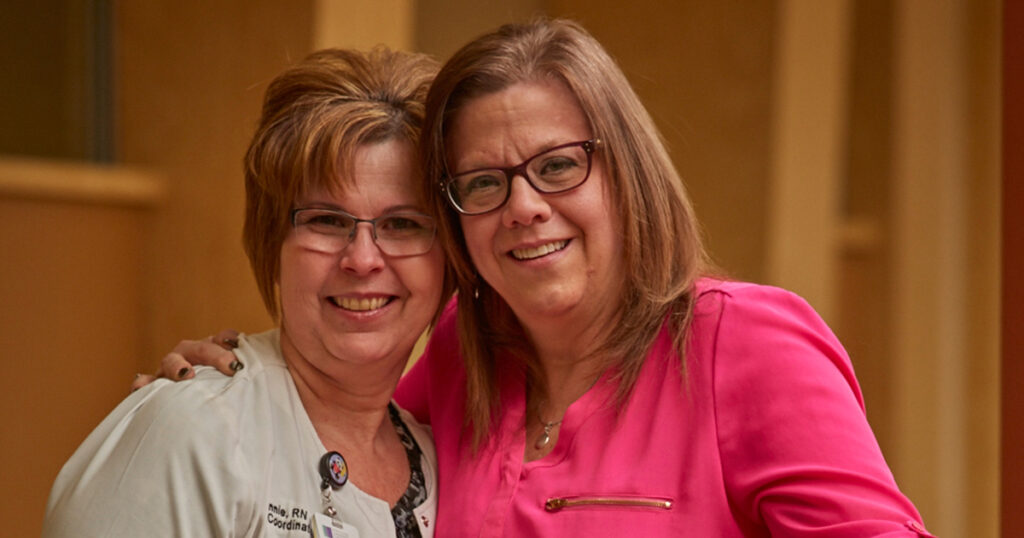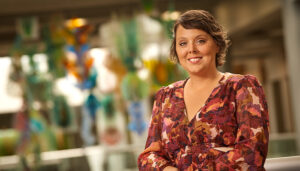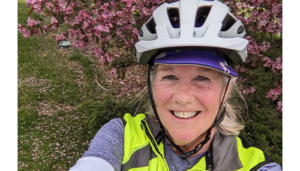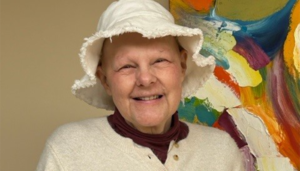“I was at work in February 2017 when my doctor called to say I had colon cancer,” says Kellie Lindblom, assistant vice president with Cedar Rapids Bank & Trust. “My co-workers heard me gasp. Everything was a whirlwind after that. I don’t even remember driving home.”
What Lindblom does remember is the next phone call she received. It was Connie Dietiker, care coordinator with Helen G. Nassif Community Cancer Center. “Connie was very calming,” Lindblom recalls. “She said ‘we are going to help you through this.’”
Doctors generally recommend regular colon cancer screenings begin at age 50, but Lindblom was only 48 when she began experiencing a variety of symptoms. She explains, “I was losing weight because I couldn’t keep anything in me, I was so weak I couldn’t make it to work at times and I had blood in my stool. My doctor referred me to a gastroenterologist and they found the cancer during a colonoscopy.”
Dietiker moved quickly to connect Lindblom with doctors and services. Lindblom chose Dr. Kerri Nowell and UnityPoint Health – St. Luke’s for her surgery. “I had my daughter at St. Luke’s and Dr. Nowell is one of the top robotic surgeons. She removed part of my colon as well as several lymph nodes. Because tests showed cancer in the lymph nodes, I needed chemotherapy. Connie coordinated that for me, too.”
Lindblom’s oncologist, Dr. Bharat Jenigiri of Physicians’ Clinic of Iowa (PCI) Hematology/Oncology, is located just below the Nassif Community Cancer Center in the PCI Medical Pavilion. Says Lindblom, “Dr. Jenigiri and his team are phenomenal. And it’s fabulous to have everything in one place.”
Meanwhile, oncology social worker Nancy Yeisley helped Lindblom with one of her toughest challenges: breaking the news to her daughter. “Jasmyne is a student at Wartburg College,” explains Lindblom. “My first thought was how was I going to tell her. Nancy gave me ideas on how to approach it and helped me with what to say.”
Because some colon cancers have a genetic component, Dietiker referred Lindblom to the Nassif Community Cancer Center’s Cancer Risk Assessment and Genetic Clinic. Lindblom and her siblings underwent testing to see if they or their children were at increased risk.
Lindblom also met with Nassif Community Cancer Center dietitians and made use of the wellness center. “We have a workout facility at the bank but it felt better to be at the Cancer Center,” she says. “People there were in the same boat I was.”
Lindblom adds, “Last year was horrible but God had a plan. It was very humbling to see all the people who were there for me when I’m used to being there for them.”
She counts her care coordinator among those who helped her through it. “Connie took care of everything so I didn’t have to think about it. I’m still dealing with the physical and emotional effects of my cancer, but I know I can call her anytime and she’ll reassure me.”
Colorectal cancer is the third most common cancer for both men and women. Getting routine colonoscopies starting at age 50 can detect cancer at its earliest, most treatable stage. It can even find and remove polyps before they turn into cancer. For more information talk to your primary care provider.







